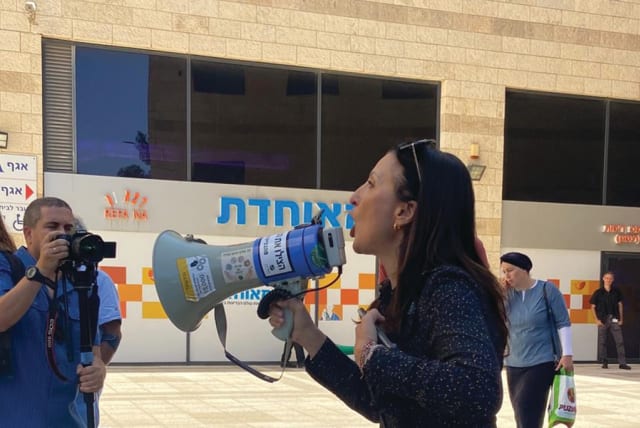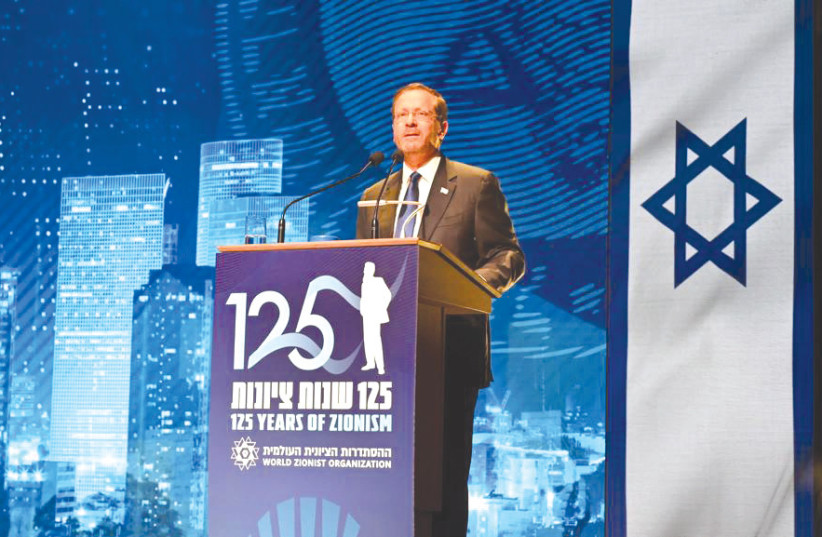Zionism: Reuniting the Jewish collective soul and body

Zionism is not simply a national movement but essentially the reunion of the Jewish collective soul with the Jewish collective body.
On the 125th anniversary of the First World Zionist Congress, we embark upon a much-needed conversation: Is Zionism the new incarnation of our Judaism?
Are we indeed in Judaism 3.0, as Gol Kalev posits in Judaism 3.0: Judaism’s Transformation to Zionism? Was the self-determination of the Jewish people in our homeland, as we briefly enjoyed 2,000 years ago, always the ultimate goal for our people?
Zionism is undoubtedly the most exciting and successful Jewish movement of the last hundred years. The vision was noble and bold; the planning, operation and sheer determination of the Zionist leadership unparalleled; and the result a miracle. Our new country was granted its birth certificate by the world, but it was the Zionist movement that conceived, carried and gave birth to the modern State of Israel.
However, Zionism is not simply a national movement but essentially the reunion of the Jewish collective soul with the Jewish collective body. After 2,500 years of exile – where the Torah, our customs, memory, and tragically also our suffering, kept us together as a tribe – today it is guaranteed by the Zionist enterprise that brought us back as independent and free people to our ancestral homeland.
Zionism is the movement that brought us home to Israel
Zionism is the movement that brought us home to the land that was promised to us by God and the land that shaped our identity as a people, as Kalev expresses. It is also the way the entire world now relates to the Jewish people and how we relate to ourselves, for good and bad.
Judaism 3.0 means to me that our soul now has a body, thanks to the Zionist movement, and therefore easier to decipher, relate to, attack, criticize, hate, love and admire. We are finally independent and thereby visible and present and, most significantly, not easily ignored.
This affects every Jew around the world, whether they identify or not, whether they live in a community or not. Today Jewish education in the Diaspora is increasingly centered around Israel; the stage of our people’s narrative is here to learn in and learn from, to visit and explore. Programs like Birthright have become a milestone in the life of every young Diaspora Jew, and Independence Day is a Jewish holiday.
I see my position as a deputy mayor of Jerusalem as a Jewish position and a Zionist position all in one, and one and the same. I have the privilege every single morning of waking up serving and representing the city that has always been the epicenter of our people, where King David reunified the Jewish tribes into one nation and is the focal point of our daily prayers. The revival of Jerusalem as our sovereign capital was part of our yearning for thousands of years and also part of Herzl’s vision.
After thousands of years of suffering and oppression, Zionism has guaranteed Jewish survival in the modern era. I believe the biggest gift I have given my children is that my husband and I chose to build our lives here and they were born in Israel. As Sabras, their Judaism is tied into this land in a wholly inseparable way and, as a Zionist, so is mine.
The writer is deputy mayor of Jerusalem in charge of foreign relations, economic development and tourism. She is also co-founder of the UAE-Israel Business Council and Gulf Israel Women’s Forum.
Jerusalem Post Store
`; document.getElementById("linkPremium").innerHTML = cont; var divWithLink = document.getElementById("premium-link"); if (divWithLink !== null && divWithLink !== 'undefined') { divWithLink.style.border = "solid 1px #cb0f3e"; divWithLink.style.textAlign = "center"; divWithLink.style.marginBottom = "15px"; divWithLink.style.marginTop = "15px"; divWithLink.style.width = "100%"; divWithLink.style.backgroundColor = "#122952"; divWithLink.style.color = "#ffffff"; divWithLink.style.lineHeight = "1.5"; } } (function (v, i) { });

